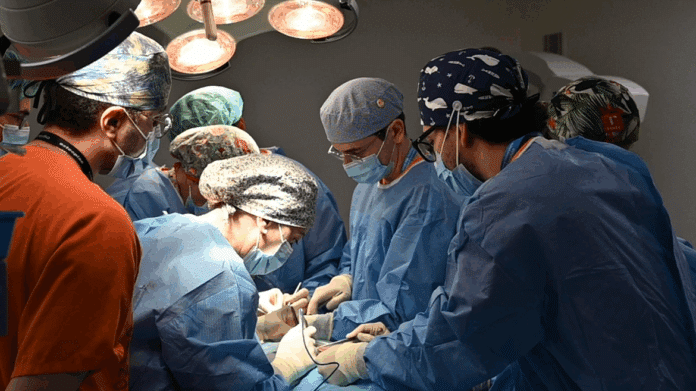The startup Digital Anatomics, located in the Carlos III University Technology Park in Leganés, is revolutionizing the field of surgical interventions in Madrid. Thanks to its innovative artificial intelligence software, seven public hospitals in the region are already using its technology, which has been implemented in 15 surgeries this year.
This tool enables detailed and precise preoperative planning of surgeries for patients with back ailments, combining artificial intelligence with 3D printing. The process includes the exact digital design of the patient's spine, which is transformed into a biomodel to guide the surgical intervention. This provides specialists with essential information to carry out high-risk procedures, such as drilling vertebrae for screw placement, in a safer and more efficient way.
Among the most notable benefits of this technological advancement is the significant reduction in preoperative time, which has gone from 2-3 weeks to just a few days, and savings of up to an hour in the operating room. Additionally, this meticulous preoperative planning reduces the risk of infections and bleeding, improving patient safety. Regarding precision, implant placement has achieved 98.9% accuracy, in sharp contrast to traditional misplacement rates of between 20% and 40%.
The regional government has widely supported this and other AI-based projects, allocating 5.8 million euros, co-financed by European funds, to improve the competitiveness of small and medium-sized enterprises, as well as to improve the quality of life of citizens. In its recent publication, the Official Bulletin of the Community of Madrid announced a second phase of this initiative with an additional 4 million euros to continue supporting the digital transformation of the region's companies.
Miguel López-Valverde, Minister for Digitalization, highlighted the strategic importance of these grants as part of the Government's Digital Strategy, emphasizing Madrid's role as an epicenter of technological innovation in the service of the health and well-being of its inhabitants. These initiatives, framed within the European Program for Technology Specialization Networks (RETECH), seek to effectively integrate new technologies into industrial value chains.



